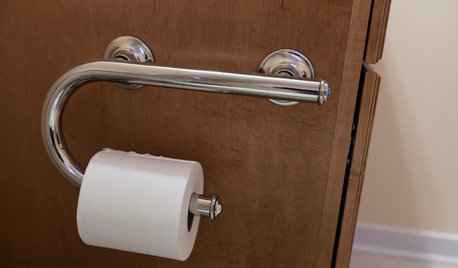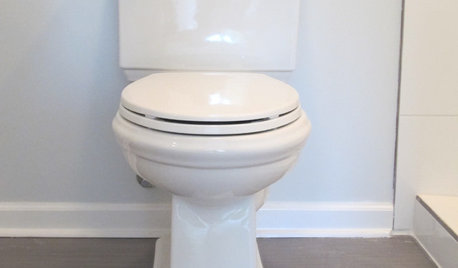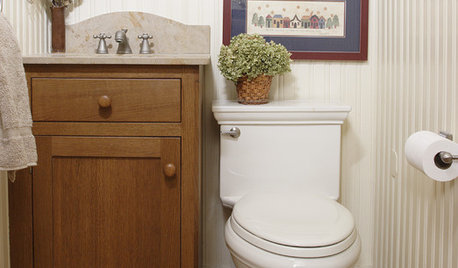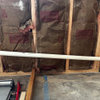Sewage backup in basement Open hole in sewer line Toilet gurgles!
gio17vani
16 years ago
Related Stories

BATHROOM DESIGNHow to Choose the Right Toilet
Style, seat height, flushing options, color choice and more will help you shop for the right toilet for you
Full Story
LIFEThe Absolute Right Way to Hang Toilet Paper. Maybe
Find out whether over or under is ahead in our poll and see some unusual roll hangers, shelves and nooks
Full Story
BATHROOM DESIGNHow to Install a Toilet in an Hour
Putting a new commode in a bathroom or powder room yourself saves plumber fees, and it's less scary than you might expect
Full Story
LIVING ROOMSBelow My Houzz: An Inviting Basement With Industrial Edge
Reconfiguring a cramped, damp basement opens up a new world of sleek, functional spaces
Full Story
REMODELING GUIDES10 Tips for Renovating Your Basement
A professional contractor shares her tips on what to consider before you commit to a basement remodel
Full Story
THE HARDWORKING HOMEWhere to Put the Laundry Room
The Hardworking Home: We weigh the pros and cons of washing your clothes in the basement, kitchen, bathroom and more
Full Story
FUN HOUZZHouzz Quiz: What Should You Do With a Basement?
Take our quiz to find out if you should turn your subterranean space into a London pub, a Lego lounge or something else
Full Story
HOUSEKEEPINGWhat's That Sound? 9 Home Noises and How to Fix Them
Bumps and thumps might be driving you crazy, but they also might mean big trouble. We give you the lowdown and which pro to call for help
Full Story
EARTH DAYGrow a Beautiful Garden With Ecofriendly Greywater
Reducing home water waste means lower bills and a healthier planet. Here's how to set up a greywater home irrigation system that can help
Full Story
GREEN BUILDINGWater Sense for Big Savings
Keep dollars in your pocket and preserve a precious resource with these easy DIY strategies
Full StoryMore Discussions








hendricus
gio17vaniOriginal Author
Related Professionals
Harmony Plumbers · Springdale Handyman · Hillcrest Heights Handyman · Wood River Kitchen & Bathroom Remodelers · Minnetonka Mills Kitchen & Bathroom Remodelers · Alpine Kitchen & Bathroom Remodelers · Bremerton Kitchen & Bathroom Remodelers · Galena Park Kitchen & Bathroom Remodelers · Honolulu Kitchen & Bathroom Remodelers · Linton Hall Kitchen & Bathroom Remodelers · Rochester Kitchen & Bathroom Remodelers · South Barrington Kitchen & Bathroom Remodelers · Sun Valley Kitchen & Bathroom Remodelers · Hewitt Kitchen & Bath Fixtures · Travilah Kitchen & Bath Fixtureslazypup
brickeyee
gio17vaniOriginal Author
jason1083
hendricus
gio17vaniOriginal Author
sunfeather
dustlyman
kahuna06
xcrmom_comcast_net